Humra Quraishi writes on two high-profile divorces – one of them is the story of Kamal Amrohi and Meena Kumari.
 What a storm has arrived in Kerala…all hell broke loose after minister Ganesh Kumar filed for divorce from his wife of 16 years, Yamini, on grounds of harassment and manhandling. And though marital storms hit most marriages at some point of time, in our country we are seemingly well-trained in perpetuating the myth of happiness even when we’re trapped in loveless, incompatible marriages.
What a storm has arrived in Kerala…all hell broke loose after minister Ganesh Kumar filed for divorce from his wife of 16 years, Yamini, on grounds of harassment and manhandling. And though marital storms hit most marriages at some point of time, in our country we are seemingly well-trained in perpetuating the myth of happiness even when we’re trapped in loveless, incompatible marriages.
The question remains: why carry on a mismatched marriage and drag it to the point that it blows up all over, or in Ganesh Kumar’s case, all over the State? What is this madness of dragging along a dead marriage, whether at the ministerial level or at own homes?
Today, of course, there are some brave souls who are choosing to part ways once they sense their onw incompatibilities, but most people don’t. This latter class of people chooses to be stifled and stranded in suffocating marriages for the sake of others.
Socially, the very word ‘divorce’ is still a taboo in our society, and the minute you declare your divorced status, you are looked at with different eyes. Even strangers throw weird glances at you, if not come right out and comment on the collapse of your marriage. When I opted for a divorce after trying to drag along a mismatched marriage for 28 long years, I can’t begin to describe how people’s attitude changed towars me. Several of my so-called friends also became fence-sitters, and from their safe perch, they would throw a lot of inquisitive questions at me.
But in the last few years, I’m seeing many people ending their marriages. In my own clan, there have been eight divorces and many more are announcing the end of their marriages. It 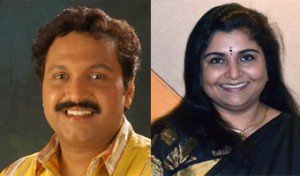 is tough to announce it, and then face the world while you soldier on alone, on a rather rough path. If only Ganesh Kumar and Yamini (in pic on right) had done exactly this, then things would probably not have taken such an ugly turn, with everyone commenting and throwing in their two cents’ worth of knowledge on the subject.
is tough to announce it, and then face the world while you soldier on alone, on a rather rough path. If only Ganesh Kumar and Yamini (in pic on right) had done exactly this, then things would probably not have taken such an ugly turn, with everyone commenting and throwing in their two cents’ worth of knowledge on the subject.
The Meena Kumari story
However, I still say that divorce should be one’s very last option, and it should come into play if there’s complete incompatibility and a complete breakdown of the relationship. Even as I write, I am reminded of the unhappily-married film star Meena Kumari. She died on March 31, 1972, so the last weekend was her 41st death anniversary.
I’d once interviewed her stepdaughter, Kamal Amrohi’s daughter Rukhsar-e-Zehra. I quote her from that interview, from what she and her mother went through when they’d heard that Kamal sahib was re-marrying, and marrying Meena Kumari, at that. Zehra said, “No doubt he was a romantic. Much before his crush on Meena Kumari, he was involved with Madhubala. They were about to get married, but one sentence from her – ‘Kamal sahib, leave your wife and kids and I will give them four lakh rupees – finished it all.
“And my father, whom I’d called baba jaani, had told Madhubala that he does not buy or sell relationships, and severed all ties with her…Later, during the shooting of Mahal, my mother fell ill. Her already-strained nerves could take it no longer, and I recall how baba jaani told us to go to Amroha for a change. It was while we were in Amroha that magazines carried details of his wedding to Meena Kumari.
“I also remember how the children of the locality used to whisper if I was the daughter of Meena Kumari and Kamal Amrohi. But somehow, I was never upset, because the way my mother explained it all to me didn’t make it appear like he’d done anything wrong. My mother adored him and would say with immense pride, ‘Main Kamal sahib ki begum hoon.’ People wondered how she could tolerate a ‘co-wife’, but all those talks didn’t really bother her, and that was why we children never felt bitterness towards him, nor were we affected by his second marriage.
“My mother had realised that hers was an ill-matched marriage and it took place only on the grounds that the elders wanted these two cousins to marry. She had the rare nerve to calmly break the news of baba jaani’s remarriage to me. All she said was, ‘Don’t worry. Now you will have another ammi, chhoti ammi, to look after you.’ With such an introduction, how could I be angry with either my father or Meena Kumari?”
I’d asked her about what had gone wrong with Kamal Amrohi and Meena Kumari’s marriage. She began by telling me how comfortable she was with the late actor. “When I was 13, I went to live with chhoti ammi and baba jaani and she wasn’t the stereotypical stepmother. Initially, I wasn’t very comfortable with her, but she would tell me, ‘Jo kuch chahiye mujhe batlao, jaise tum abba jaan se kehti ho (If you need anything, let me know the same way you would let your father know).’
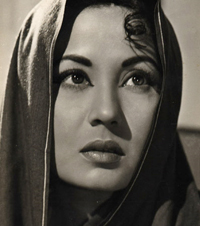 She would leave for her shoots early after instructing the servants that I had to be looked after properly. On her return, if she wasn’t tired, we would sit and play carrom or just talk. Though her spoken English was rather poor, she had picked up a few words to speak with me. She respected my father’s sentiments of never encouraging me to join films. I grew rather fond of her as time went by. For, besides caring for me and my two brothers, (who initially stayed with her and were later sent to hostel) whenever my mother visited Bombay, Meena would treat her with respect and would tell her, ‘Apa jaan, yeh ghar aap ka hai (Dear sister, this is your home).’
She would leave for her shoots early after instructing the servants that I had to be looked after properly. On her return, if she wasn’t tired, we would sit and play carrom or just talk. Though her spoken English was rather poor, she had picked up a few words to speak with me. She respected my father’s sentiments of never encouraging me to join films. I grew rather fond of her as time went by. For, besides caring for me and my two brothers, (who initially stayed with her and were later sent to hostel) whenever my mother visited Bombay, Meena would treat her with respect and would tell her, ‘Apa jaan, yeh ghar aap ka hai (Dear sister, this is your home).’
“I never saw any clash between her and my mother. On the contrary, if my mother stitched ghararas, it would always be six – two for me, two for herself and two for chhoti ammi…’
But a discord between the husband and wife did exist. Zehra told me, “The first time a major fight took place between the two was over the abortion issue. Baba had gone out, and without his knowledge, she’d decided to abort the baby. Months after that, she went in for a second abortion. There was a severe showdown this time, too. My father was very keen on having children with her, but she wasn’t keen on it. The deterioration in their relationship started with that. Then she took to the bottle and started having flings.
“As far as I can remember, she started taking brandy as a cure for insomnia, but knowing that my father disliked any sort of alcohol, she’d have it kept in Dettol bottles and sip it on the sly in the toilet. As to why she left the home, I don’t know the finer details. That day, on returning from school, I learnt from the servants that she’d left. My father went out to try and get her back (she had gone to actor Mehmood’s house), but she was determined never to return.
“My father really loved her. Several years later, when I asked him if he still loved her, he said, ‘Yes.’”
Humra Quraishi is a senior political journalist based in Gurgaon. She is the author of Kashmir: The Untold Story and co-author of Simply Khushwant.
(Pictures courtesy ndtv.com, divorcedwomenonline.com, nowrunning.com, bollyspice.com)

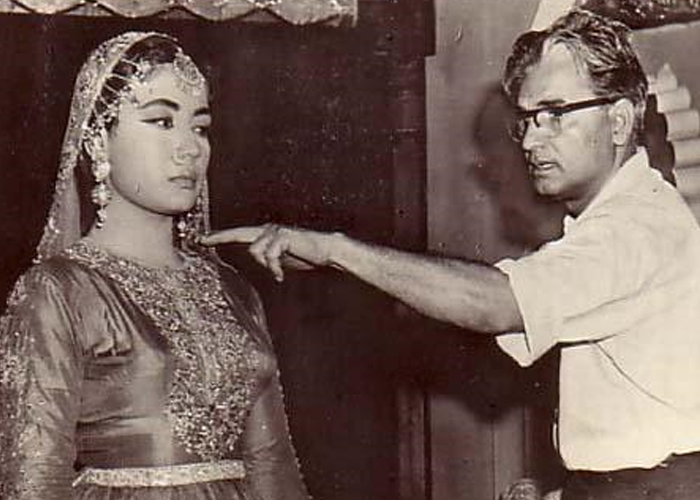
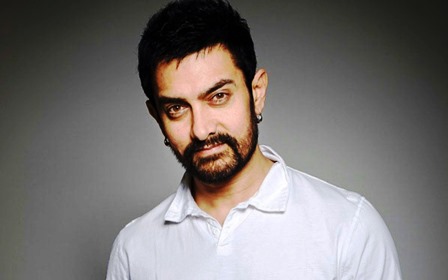
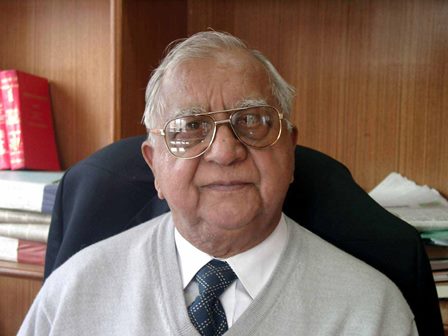
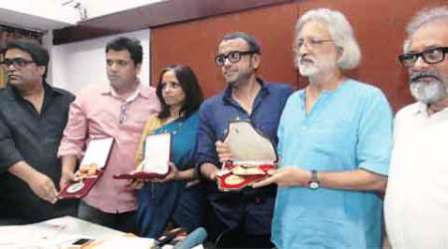
Would she have written the above article if she wasn’t a divorcee herself? Did being a divorcee help?